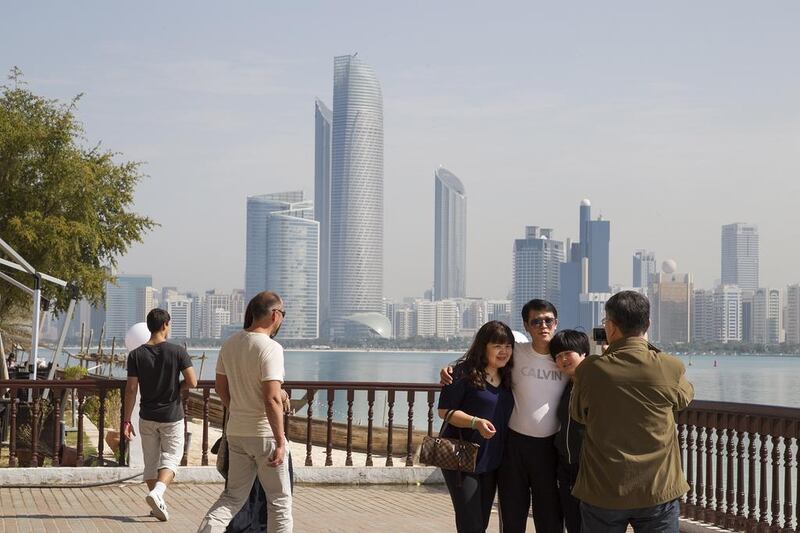ABU DHABI // People in the UAE must be aware of laws concerning photography when taking pictures, legal experts have said after the arrest of an American last month.
Dr Robert Alan Black, 70, was released on Tuesday after being detained at Al Wathba prison since October 21, his friends announced on a Facebook page created to advocate his release.
Dr Black faced charges for taking pictures of restricted areas, the announcement read. It said that a court found that the action was committed with no ill intention and ordered him to pay the minimum fine of Dh500.
Dr Black, an American architect and author, had been in Abu Dhabi for the Creative Thinkers Conference.
Rosemary Rein, speaking on behalf of an informal group of colleagues that had worked towards Dr Black’s release, said that they were happy about his release and that he would be returning home to Georgia, USA.
“The international creativity community was concerned about our dear friend and colleague, and we’re glad the matter has been resolved,” said Ms Rein.
Yousef Al Bahar, a lawyer, encouraged people to familiarise themselves with local laws on photography by purchasing a book on them or visiting websites of legal institutions.
Taking photos in restricted areas can result in one to three months in jail or fine of up to Dh5,000, he said.
“In most of the areas, like public areas, there is a sign that you cannot take a photo,” he said, referring to restricted areas.
Arrests for such offences are not very common, said Ahmad Saif, chief of Dubai Civil Court.
People taking photographs should be aware of which areas are restricted, said Imraan Dudhia, a South African photographer and workshops manager at Gulf Photo Plus in Dubai.
Military areas, palaces, courts, Government buildings and certain bridges should be avoided, he said, saying this was similar to rules elsewhere.
While he said he has mostly taken photographs in Dubai, he said he has never encountered a major problem.
“I’ve never had any serious issue, and I’ve been shooting here for eight years,” he said.
“I would say it’s just a case of exercising caution, common sense and cultural sensitivity,” said Mr Dudhia, whose organisation is running a series on street photography.
People must have permission before taking pictures of others.
“What I have found outside Dubai, in the quieter, more remote areas, is that people are extremely happy to have their picture taken [or] see someone walking around with a camera or the opposite,” he said.
“You will likely get approached and asked to leave nicely if a village resident takes exception.”
The Abu Dhabi Tourism and Culture Authority and Abu Dhabi Police did not immediately respond to a request for comment. The US Embassy has said it is unable to comment because it does not have a Privacy Act waiver for Mr Black.
Several people have been charged with illegally taking photographs in Abu Dhabi, according to previous reports.
A judge in 2011 requested clarification on the legality of photography at Yas Marina Circuit after two Bangladeshi residents were charged with illegally taking photographs at the racetrack.
Three men faced charges in 2012 for taking illegal photos of the Qatari Embassy, and said they were actually photographing the nearby Capital Gate tower.
Another man faced charges for taking photos of the General Armed Forces headquarters, located across from the Sheikh Zayed Grand Mosque. He had said he was photographing the mosque and did not know the military site was there. He received a Dh300 fine.
lcarroll@thenational.ae






